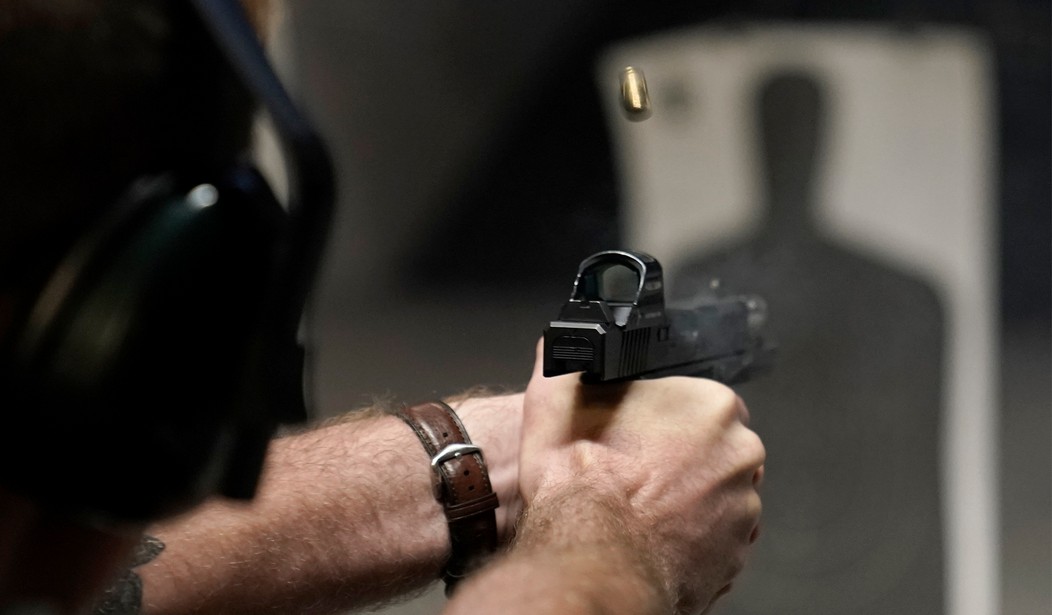On Tuesday, the Supreme Court heard arguments in United States v. Rahimi. In this case, the plaintiff, Zackey Rahimi, is claiming that a clause in the federal Violence Against Women Act, which prohibits possession of a firearm by anyone who is subject to a domestic violence protection order, violates his Second Amendment rights.
It's an interesting problem. There are arguments on both sides of this issue that make sense to a lot of people. Dr. John Lott Jr. has weighed in:
The Supreme Court is asking: What is the standard of evidence needed to strip someone of their constitutional right to keep and bear arms? People lose their right to a gun when convicted of felonies and some violent misdemeanors. But the Domestic Violence Protection Orders are handled as civil cases. In civil cases, you have a much lower standard of proof, no right to a lawyer, and not even necessarily a hearing. Indeed, Rahimi lost his rights without a hearing or a lawyer to represent him.
This is a fair concern. As Dr. Lott points out, Domestic Violence Protective orders are handled in civil courts, not criminal courts, and the standard of proof is lower. Defendants have no defined right to an attorney; in general, due process has a much lower bar to cross.
One would think a law allowing a citizen to be stripped of a right defined in the Constitution would require strict scrutiny, defined as "the highest level of judicial scrutiny that is applied especially to a law that allegedly violates equal protection in order to determine if it is narrowly tailored to serve a compelling state interest." Is preventing domestic abuse a "...compelling state interest?" That should certainly be one of the points the Supreme Court addresses in this case. If a law dealing with a right, defined in the Bill of Rights, should not be subject to strict scrutiny, it's hard to imagine anything so qualifying.
Dr. Lott concludes:
Disarming convicted, violent criminals is one thing. But the lower standard of proof in civil matters means that mistakes are more likely to happen, with innocent people facing harm. Domestic Violence Protection Orders fail to withstand constitutional analysis and also fail to make people safer.
However, at least two of the Supreme Court justices seem likely to rule against Rahimi:
Supreme Court Justice Elena Kagan questioned that stance. Kagan said Wright’s position seems to apply to a wide variety of bans designed to protect the public.
“You seem to be running away from it because you can't stand what the consequences of it are,” she said.
And:
Supreme Court Justice Amy Coney Barrett appeared to agree.
“I think there would be little dispute that…domestic violence is dangerous,” Barrett said.
While that statement from Barrett seems a textbook example of belaboring the obvious, it does seem to indicate where she may fall on this issue. Indeed, she also stated that constitutional rights may be removed based on some nebulous concept of "dangerousness."
Conservative Justice Amy Coney Barrett, who was in the majority in the 2022 case, indicated she agreed with Prelogar, saying that "the legislature can make judgments to disarm people consistently with the Second Amendment based on dangerousness."
Look, nobody is making the case here that Zackey Rahimi is a sterling example of American manhood. He is accused of multiple acts of domestic violence, some of which had witnesses that reported Rahimi's hitting his former partner, throwing her into a car, and firing a shot at a bystander. Damn few people, even among Second Amendment activists (like me), would think it a good thing for Rahimi to have a gun. But the Bill of Rights applies to everyone, dirtbags included, and one would think that strict scrutiny would preclude denying a fundamental right to a citizen based on a civil court action.
Furthermore, the real question here is this: If Rahimi did, as stated, commit what would appear to be felony assault, assault with a deadly weapon, and (arguably) kidnapping, has he been charged with any of these, which are felonies? If he has, and if he is convicted, that would also achieve the goal of disarming him, and since a felony conviction includes observing Rahimi's rights of trial by his peers, legal representation, and the right to confront his accusers, strict scrutiny would seem to be satisfied.
Tough cases, as they say, can make for bad law. This is certainly a tough case, and while nobody wants to see violent abusers arming themselves, playing fast and loose with fundamental rights is also a very real concern. Some problems don't have a solution. This may be one of those. It will be interesting to see how the Court ends up ruling in this case.
My colleague, Jeff Charles, last July produced an excellent piece summing up this case as it stood at that time. You can read that article here.













